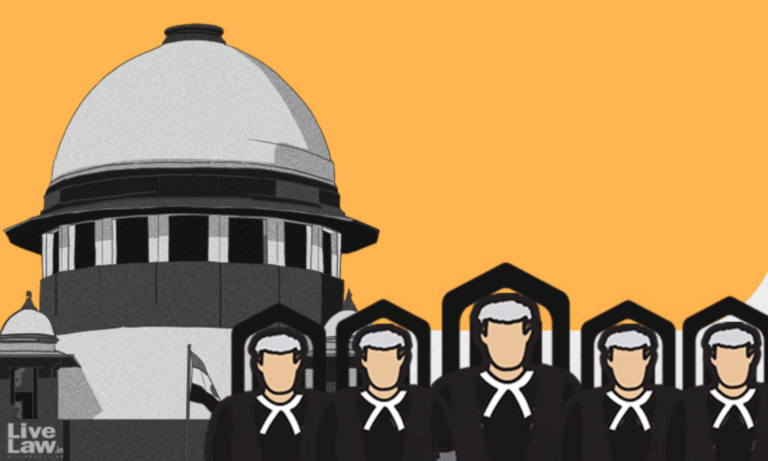Introduction:
Nepotism in the Judiciary: Undermining Justice and IntegrityNepotism, a term often associated with favoritism shown to relatives or close associates, casts a long shadow over the principles of fairness and justice within the judiciary. This article delves into the complexities and implications of nepotism within the judicial system, exploring how it undermines trust and impartiality.
Understanding Nepotism in the Judiciary
Nepotism in the judiciary manifests when individuals are appointed, promoted, or favored in legal proceedings based on personal relationships rather than merit. This practice not only compromises the integrity of judicial decisions but also erodes public confidence in the legal system.
Case Studies and Examples
Numerous instances worldwide illustrate the pervasive nature of nepotism in the judiciary. From appointments of judges' relatives to influential positions to favorable rulings benefiting connected parties, these cases underscore the detrimental impact of nepotism on judicial independence and accountability.
Impact on Fairness and Justice
The prevalence of nepotism introduces biases that can skew legal outcomes, favoring those with connections over those seeking impartial justice. Such practices not only violate ethical standards but also perpetuate inequality and undermine the rule of law.
Challenges and Ethical Considerations
Addressing nepotism requires robust ethical guidelines and transparency in judicial appointments and decisions. However, entrenched practices and political pressures often complicate efforts to curb favoritism within the judiciary.
Chances of Favouritism and Nepotism:The collegium system does not provide any specific criteria for testing the candidate for the post of CJI because of which it leads to wide scope for nepotism and favouritism.
For instance, as per the two senior-most district judges, the Himachal Pradesh HC collegium had ignored the SC collegium's advice in the selection process of judicial officers much junior to them, bypassing their merit, seniority, and "unblemished judicial track record."Allegedly, the collegium system gives rise to non-transparency of the judicial appointments, which is very harmful for the regulation of law and order in the country.
Cases related to nepotism in the judiciary can vary widely across different countries and legal systems. Here are a few notable examples that have drawn attention to issues of favoritism and nepotism within the judiciary.
India : Justice Soumitra Sen – Calcutta High Court faced impeachment proceedings in 2011 for financial misappropriation and was accused of favoritism towards a law firm in which his wife held a financial interest. This case highlighted ethical concerns and conflicts of interest within the judiciary.
Brazil – Justice Fausto Martin De Sanctis: In 2010, Justice Fausto Martin De Sanctis, a federal judge in Brazil, was investigated for allegedly favoring his daughter in a judicial process involving a high-profile case. The accusations raised questions about impartiality and ethical standards in the Brazilian judiciary.
United States – Justice Patricia Millett: In 2014, concerns were raised when Justice Patricia Millett of the U.S. Court of Appeals for the D.C. Circuit's daughter was hired by a law firm involved in cases before the court. While not a direct case of nepotism, it sparked discussions about the appearance of impropriety and potential conflicts of interest in the U.S. judiciary.
Nigeria – Justice Pius Aderemi: In 2019, Justice Pius Aderemi of the Federal High Court in Nigeria faced allegations of nepotism after appointing his son as his personal assistant, which raised concerns about fairness and transparency in judicial appointments and decisions.
These cases illustrate how nepotism can manifest in different forms within the judiciary, impacting public trust and raising ethical and legal concerns about impartiality and fairness in judicial proceedings.
The Anatomy of Nepotism in Judicary
Nepotism within the judiciary manifests in various forms, all of which undermine the principles of impartiality and meritocracy:
Appointment Bias: Judicial appointments based on familial or personal relationships rather than merit and qualifications erode public confidence. When judgeships are handed down as family heirlooms or political favors, competence and integrity take a backseat to connections.
Case Assignments: In some cases, judges may assign cases in a manner that benefits themselves or their relatives, either directly or indirectly. This can lead to unequal treatment under the law and suspicions of favoritism.
Influence Peddling: The undue influence of relatives or associates on judicial decision-making compromises the independence of the judiciary. This influence can range from subtle suggestions to outright manipulation of legal proceedings.
Consequence Of Judicial Nepotism
The ramifications of nepotism in the judiciary extend far beyond mere accusations of bias:
Erosion of Trust: Citizens rely on the judiciary to be impartial and fair. When nepotism taints judicial decisions, public trust diminishes, eroding the legitimacy of the entire legal system.
Injustice : Nepotism can result in unjust outcomes where individuals with connections receive preferential treatment while others are denied justice. This inequality corrodes the notion of equality before the law.
Combating Nepotism in the Judiciary
Addressing nepotism in the judiciary requires concerted efforts from multiple stakeholders:
Transparency and Accountability: Implementing transparent processes for judicial appointments and case assignments can mitigate opportunities for nepotistic practices.
Merit-Based Selection: Establishing clear criteria and merit-based systems for judicial appointments can help ensure that judges are chosen based on competence and integrity rather than connections.
Ethics and Oversight: Strengthening judicial ethics codes and establishing independent oversight bodies can deter nepotistic behavior and hold accountable those who engage in such practices.
Public Awareness and Advocacy: Educating the public about the dangers of judicial nepotism and advocating for reforms can increase pressure for change and promote a more equitable legal system.
Conclusion: Nepotism in the judiciary undermines the fundamental principles of justice and equality. It erodes public trust, perpetuates inequality, and threatens the integrity of legal institutions. Addressing this issue requires a commitment to transparency, meritocracy, and ethical governance. By rooting out nepotism, societies can uphold the rule of law and ensure that justice is truly blind and impartial for all.

